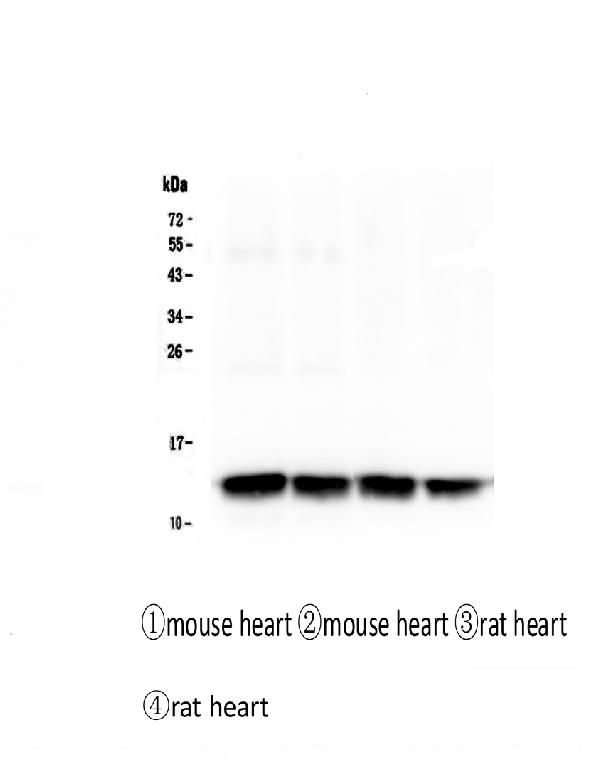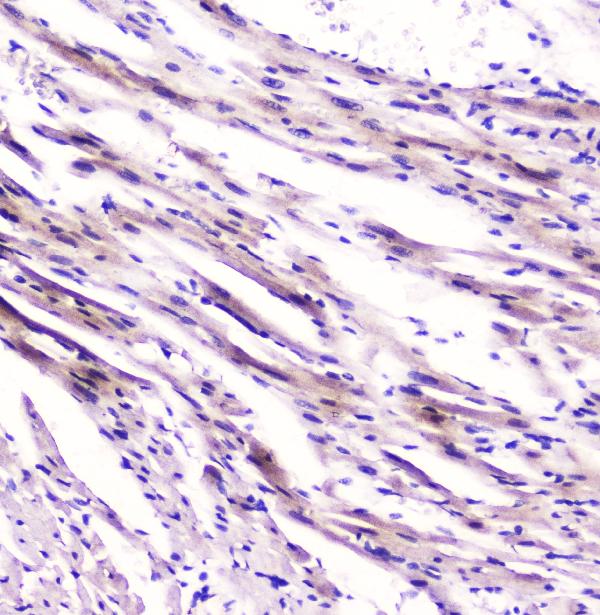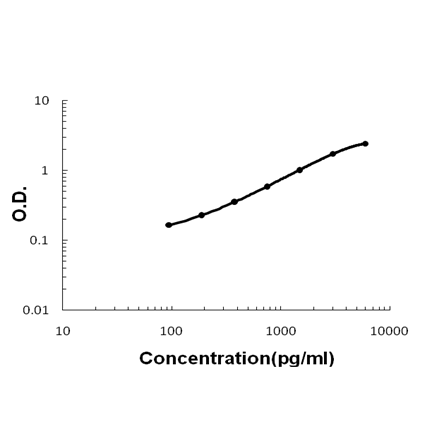Anti-Cardiac FABP Fabp3 Antibody Picoband™ (monoclonal, 6C4)
- SPECIFICATION
- CITATIONS
- PROTOCOLS
- BACKGROUND

Application
| WB, IHC, E |
|---|---|
| Primary Accession | P07483 |
| Host | Mouse |
| Isotype | Mouse IgG1 |
| Reactivity | Rat, Mouse |
| Clonality | Monoclonal |
| Format | Lyophilized |
| Description | Anti-Cardiac FABP Fabp3 Antibody Picoband™ (monoclonal, 6C4) . Tested in ELISA, IHC, WB applications. This antibody reacts with Mouse, Rat. |
| Reconstitution | Add 0.2ml of distilled water will yield a concentration of 500ug/ml. |
| Gene ID | 79131 |
|---|---|
| Other Names | Fatty acid-binding protein, heart, Fatty acid-binding protein 3, Heart-type fatty acid-binding protein, H-FABP, Fabp3 |
| Calculated MW | 15 kDa |
| Application Details | Western blot, 0.1-0.5 µg/ml Immunohistochemistry (Paraffin-embedded Section), 0.5-1 µg/ml ELISA (Cap), 1-5 µg/ml |
| Subcellular Localization | Cytoplasm. |
| Tissue Specificity | Heart, but also skeletal muscle, kidney, brain and mammary gland. |
| Contents | Each vial contains 4mg Trehalose, 0.9mg NaCl, 0.2mg Na2HPO4, 0.05mg NaN3. |
| Clone Names | Clone: 6C4 |
| Immunogen | E. coli-derived rat Cardiac FABP recombinant protein (Position: A2-A133). |
| Cross Reactivity | No cross-reactivity with other proteins. |
| Storage | Store at -20˚C for one year from date of receipt. After reconstitution, at 4˚C for one month. It can also be aliquotted and stored frozen at -20˚C for six months. Avoid repeated freeze-thaw cycles. |
| Name | Fabp3 |
|---|---|
| Function | FABPs are thought to play a role in the intracellular transport of long-chain fatty acids and their acyl-CoA esters. |
| Cellular Location | Cytoplasm. |
| Tissue Location | Heart, but also skeletal muscle, kidney, brain and mammary gland |

Thousands of laboratories across the world have published research that depended on the performance of antibodies from Abcepta to advance their research. Check out links to articles that cite our products in major peer-reviewed journals, organized by research category.
info@abcepta.com, and receive a free "I Love Antibodies" mug.
Provided below are standard protocols that you may find useful for product applications.
Background
Heart-type fatty acid binding protein (hFABP), also known as mammary-derived growth inhibitor, is a protein that in humans is encoded by the FABP3 gene. The intracellular fatty acid-binding proteins (FABPs) belong to a multigene family. Fatty acid-binding protein 3 gene contains four exons and its function is to arrest growth of mammary epithelial cells. This gene is also a candidate tumor suppressor gene for human breast cancer. Cardiac-type fatty acid-binding protein (cFABP) from human heart muscle of three individuals was isolated and characterized as pI 5.3-cFABP.
If you have used an Abcepta product and would like to share how it has performed, please click on the "Submit Review" button and provide the requested information. Our staff will examine and post your review and contact you if needed.
If you have any additional inquiries please email technical services at tech@abcepta.com.













 Foundational characteristics of cancer include proliferation, angiogenesis, migration, evasion of apoptosis, and cellular immortality. Find key markers for these cellular processes and antibodies to detect them.
Foundational characteristics of cancer include proliferation, angiogenesis, migration, evasion of apoptosis, and cellular immortality. Find key markers for these cellular processes and antibodies to detect them. The SUMOplot™ Analysis Program predicts and scores sumoylation sites in your protein. SUMOylation is a post-translational modification involved in various cellular processes, such as nuclear-cytosolic transport, transcriptional regulation, apoptosis, protein stability, response to stress, and progression through the cell cycle.
The SUMOplot™ Analysis Program predicts and scores sumoylation sites in your protein. SUMOylation is a post-translational modification involved in various cellular processes, such as nuclear-cytosolic transport, transcriptional regulation, apoptosis, protein stability, response to stress, and progression through the cell cycle. The Autophagy Receptor Motif Plotter predicts and scores autophagy receptor binding sites in your protein. Identifying proteins connected to this pathway is critical to understanding the role of autophagy in physiological as well as pathological processes such as development, differentiation, neurodegenerative diseases, stress, infection, and cancer.
The Autophagy Receptor Motif Plotter predicts and scores autophagy receptor binding sites in your protein. Identifying proteins connected to this pathway is critical to understanding the role of autophagy in physiological as well as pathological processes such as development, differentiation, neurodegenerative diseases, stress, infection, and cancer.




